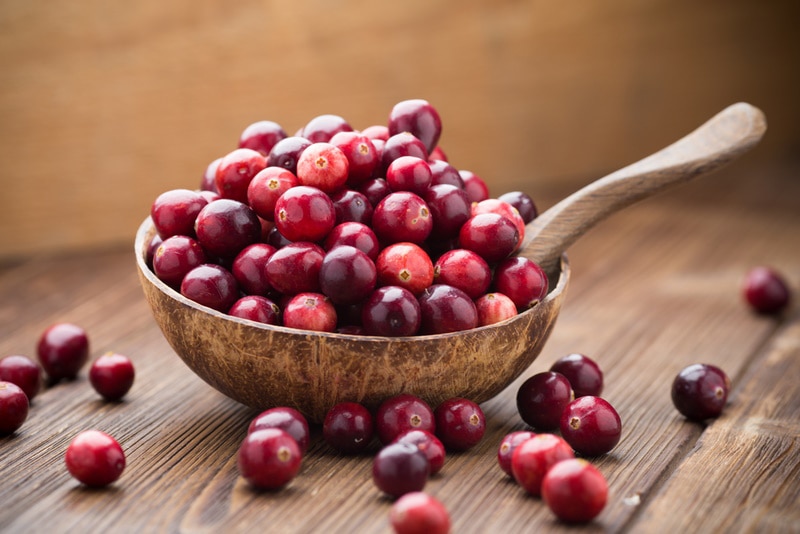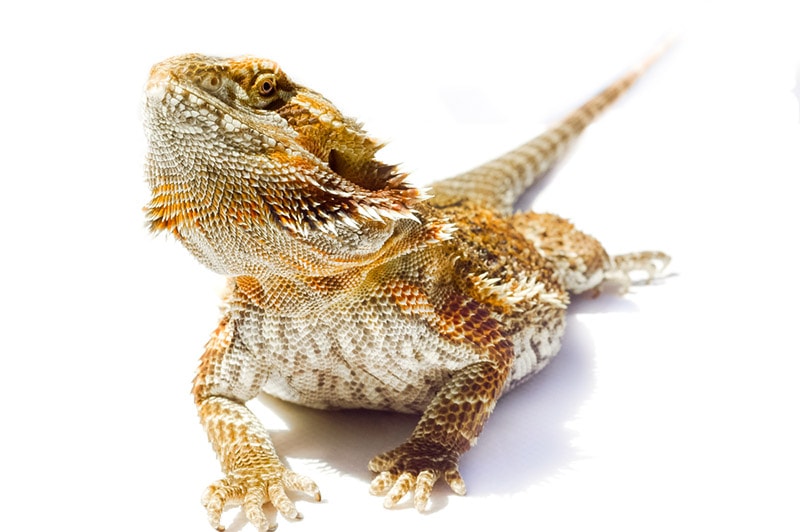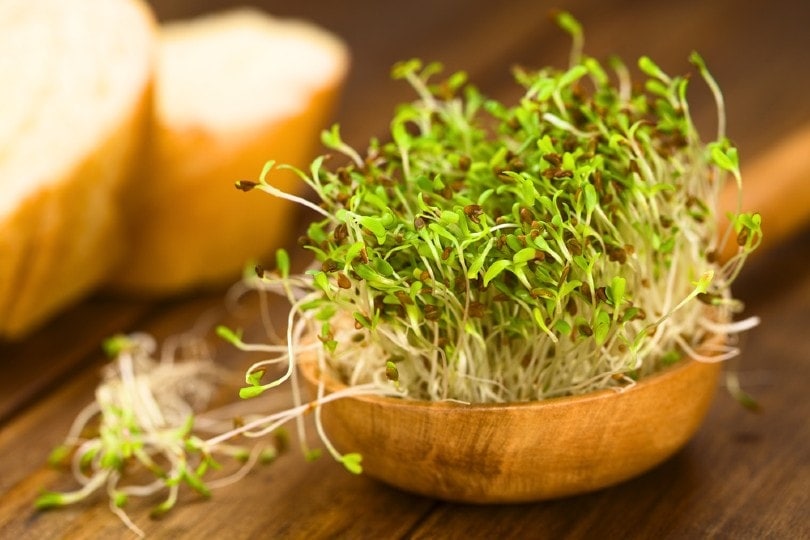Can Bearded Dragons Eat Cranberries? Vet Approved Nutrition Advice
By Oliver Jones
Updated on

Bearded Dragons are incredible companions; if you have owned one, we are sure you will agree. But if you are new to the world of reptiles and still have more to learn, you’ll want to take the best care of your Beardie by providing them with the healthiest diet. You may know by now that Bearded Dragons can eat some fruits, but there are also some they shouldn’t eat. You can give your Beardie cranberries as an occasional treat, about one or two every other week. They shouldn’t eat cranberries as a regular part of their diet, and in this article, we’ll explain why.
Can Bearded Dragons Eat Cranberries?
Yes, Bearded Dragons can eat cranberries as an occasional treat. One or two cranberries is enough, with most experts only recommending they are fed once or twice a month. Their health would be at risk if they were fed cranberries daily or regularly. Cranberries are a delicious blend of sweet and bitter and are the perfect size for a tasty nibble.
They’re high in fiber and include several vitamins and minerals. However, they do contain more phosphorus than calcium and the best foods for Beardies are calcium rich and low in phosphorus. Furthermore, as with all fruits, they are high in sugar which can lead to health issues if fed in too large amounts.
Risks of Feeding Your Bearded Dragon Cranberries
Cranberries are bitter and contain less sugar than some other berries, however dried cranberries will be higher in sugar. Excess sugar intake can cause many health issues for your Beardie including digestion problems, obesity and dental issues.
The other potential risk of feeding your Beardie too many cranberries regularly is metabolic bone disease (MBD). As mentioned above, the ratio of phosphorus to calcium of cranberries is unsuitable for Bearded Dragons, regularly feeding a diet which contains an inappropriate ratio of calcium to phosphorus can lead to the development of MBD, which is a complex and serious condition.
Furthermore, dried cranberries may be difficult for your Bearded Dragon to eat.

Can You Give Your Bearded Dragon Cranberry Sauce?
Cranberry sauce contains more added sugar and other additives and preservatives. It will not benefit your Beardie’s health, and avoiding cranberry sauce altogether is best.
How To Feed Your Bearded Dragon Cranberries
We have determined that cranberries can be offered to your Beardie as an occasional treat, but it’s important to know how to feed them to your pet. To remove any chemicals, you should wash fresh cranberries first, especially if they are not organic. You will then need to remove the seeds and cut them into smaller pieces.
This goes for dried cranberries as well; although there are no seeds to remove, you must still ensure they are small enough to chew and not able to get stuck in your Beardie’s throat. Due to the higher sugar content of dried cranberries we recommend sticking to fresh ones.
What Should I Feed My Bearded Dragon?
Your Bearded Dragon will appreciate and love a treat every now and then, such as a cranberry or two, but it is important for them to have a well-balanced diet.
Vegetables, Insects, and Fruit
Your Beardie will benefit from a diverse diet of vegetables, live food, and limited fruits. When choosing a diet for your Bearded Dragon, their age will play a factor. A juvenile’s diet should be made up of approximately 80% live food and 20% plants. As your Beardie gets older, the ratio is flipped to about 80% plants and 20% live food.
Young Bearded Dragons typically need to eat once or twice a day; however, older Bearded Dragons may only require feedings every 24 to 72 hours, depending on their appetite.
Ideal Percentage of Vegetables
Only 10%–20% of the plant material should be fruits, with 80%–90% being leafy green vegetables and flowers. Avoid light green veggies high in fiber, low in nutrients, and deficient in vitamins, such as iceberg or head lettuce, celery, and carrots.
Although raw vegetables are more wholesome and retain more nutrients, both cooked and raw vegetables can be offered. They should be washed thoroughly and cut into appropriate sized pieces or grated.
Fruit
Your Bearded Dragon may prefer fruits, but as they are typically low in minerals, they should only be offered occasionally. You can also provide treats like roses, geraniums, carnations, dandelions, hibiscus, and nasturtiums.

Suitable Vegetables for Bearded Dragons
- Collard greens
- Kale
- Raw zucchini
- Raw asparagus
- Parsnips
- Pumpkin
- Butternut squash
- Cabbage
- Peeled cucumber
- Bell peppers
- Endive
Suitable Live Food for Bearded Dragons
- Crickets
- Earthworms
- Mealworms
- Silkworms
- Waxworms
Suitable Fruits for Bearded Dragons
- Strawberries
- Peaches
- Seedless apples
- Blackberries
- Blueberries
- Cherries
- Mango
- Pineapple
- Pear
- Watermelon
- Papaya
Conclusion
You can offer cranberries as an occasional treat for your Bearded Dragon, but they shouldn’t make up part of their regular diet. They are high in sugar and have a poor calcium-to-phosphorus ratio, which could put your Beardie at risk for MBD if they consume them regularly. It is also important to remember that your Beardie’s diet is primarily vegetables and live food, and all suitable fruits should be limited, including cranberries. If you decide to give your Bearded Dragon cranberries, it should only be one or two every few weeks, and you should always consult with your vet beforehand.











